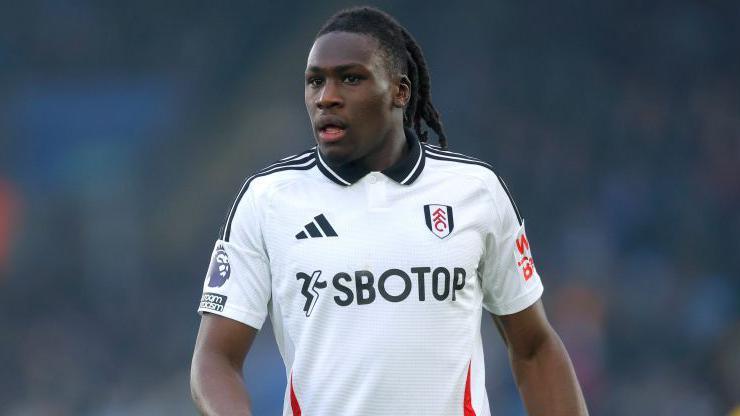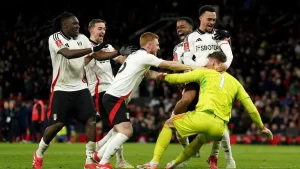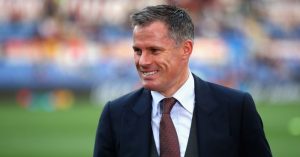
Racial incidents on the football field remain a pressing and disturbing issue. The recent incident involving Calvin Bassey, who faced racial abuse following an FA Cup match, underscores the challenges players endure in their professional journeys. Despite the widespread condemnation from football clubs and authorities, such acts of bigotry reflect a systemic problem that clearly stretches beyond isolated episodes. Bassey’s experience is not an anomaly but part of a disturbing pattern that resonates across various leagues, where players of color are frequently targeted.
The story of Calvin Bassey’s abuse draws much-needed attention to the broader conversation about racism in sports, compelling clubs and associations to reaffirm their commitment to diversity and inclusion through supportive platforms like 99Bitcoins Top Baccarat Sites. Through solidarity and vigilance, the football community is urged to push for greater accountability, fostering an environment where players can perform without fear of discrimination. Bassey, alongside others who have endured similar challenges, exemplifies resilience and serves as a catalyst for the ongoing fight against prejudice in football.
The widespread nature of racial abuse in football
Racial abuse in football is neither new nor confined to a single player; it is a deep-seated issue that poses significant challenges across the sport. Calvin Bassey’s unfortunate experience is further testimony to the enduring nature of racial discrimination within the game. This incident, like many others, raises urgent questions about the effectiveness of existing measures to combat racism in sport. Beyond the FA Cup, other leagues such as La Liga have also been marred by similar episodes, evidencing the global scope of this problem. Football’s popularity brings with it the responsibility to model social norms that reject intolerance. As highlighted by data from Kick It Out, reports of discriminatory behavior in soccer reached an ‘alarming’ record, emphasizing the need for continuous and collaborative efforts from all stakeholders within the football industry. In this regard, Parish Reveals Zaha Stance highlights the challenges faced by players of color and the ongoing commitment needed from clubs.
Related: Man United Fans Racially Abuse Bassey After FA Cup Defeat To Fulham
Solidarity and support from clubs and players
The support shown by clubs and fellow players towards individuals facing abuse highlights the unity and strength within the football community. Following Calvin Bassey’s ordeal, Fulham’s public condemnation of the abuse is part of a wider trend where clubs actively back their players against discrimination. Such solidarity is crucial, not only for the morale of the affected individuals but also for holding abusers accountable and discouraging such behavior. Players, in turn, often demonstrate commendable resilience, choosing to exhibit their talent and identity with pride despite facing adversity. These collective efforts emphasize the importance of steadfastness in combating racial injustice, fostering an environment where players can thrive based on skill rather than being judged by their heritage.
The call for effective action against racial abuse
The enduring prevalence of racial abuse in sports, typified by the case of Calvin Bassey, has led to increasing calls for more potent actions. It becomes imperative to enforce stringent policies against offenders and introduce comprehensive educational programs targeting football fans globally. To eradicate racism, football leagues must innovate beyond symbolic gestures and ensure tangible progress towards inclusivity. By learning from successful anti-racism campaigns and integrating them into existing strategies, the football industry can chart a path to meaningful change. Engaging fans, local communities, and media in dialogue equips everyone with the tools needed to battle discrimination, thereby redefining football as a sport that truly stands for equality.
Racisme in het voetbal is een hardnekkig probleem dat al jarenlang de sport teistert. Spelers van verschillende etnische achtergronden worden regelmatig geconfronteerd met racistische opmerkingen, spreekkoren en zelfs fysiek geweld van fans en medespelers. Deze vorm van discriminatie heeft een verwoestend effect op de slachtoffers en tast de integriteit van de sport aan.
Het aanpakken van racisme in het voetbal is een complexe uitdaging die een gecoördineerde inspanning vereist van alle betrokken partijen, waaronder voetbalclubs, voetbalbonden, spelers, fans en de media. Er zijn verschillende maatregelen die kunnen worden genomen om racisme in het voetbal te bestrijden en een inclusieve en respectvolle sportcultuur te bevorderen.
Een van de belangrijkste stappen die kunnen worden genomen is het implementeren van strengere sancties tegen racisme. Voetbalclubs en voetbalbonden moeten duidelijk maken dat racistisch gedrag niet wordt getolereerd en dat overtreders zware straffen zullen krijgen, zoals boetes, schorsingen en uitsluiting van wedstrijden. Daarnaast moeten er educatieve programma’s worden ontwikkeld om spelers, coaches en fans bewust te maken van de schadelijke gevolgen van racisme en hen te leren hoe ze respectvol met elkaar kunnen omgaan.
Het is ook belangrijk dat voetbalclubs en voetbalbonden diversiteit en inclusie bevorderen binnen hun organisaties. Door meer mensen met verschillende achtergronden aan te trekken en te behouden, kunnen clubs een inclusieve cultuur creëren die racisme tegengaat. Daarnaast kunnen clubs samenwerken met lokale gemeenschappen en organisaties om bewustwordingscampagnes te organiseren en positieve rolmodellen te promoten.
Het is essentieel dat de media een constructieve rol spelen bij het bestrijden van racisme in het voetbal. Door racistische incidenten serieus te nemen en erover te rapporteren op een verantwoorde en respectvolle manier, kunnen de media helpen om bewustwording te creëren en een dialoog op gang te brengen over dit belangrijke onderwerp.
Kortom, het aanpakken van racisme in het voetbal vereist een gecoördineerde inspanning van alle betrokken partijen. Door strengere sancties op te leggen, educatieve programma’s te ontwikkelen, diversiteit en inclusie te bevorderen en de media te betrekken, kunnen we samen werken aan een sportcultuur die vrij is van discriminatie en waarin iedereen zich welkom en gerespecteerd voelt.

